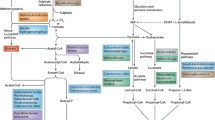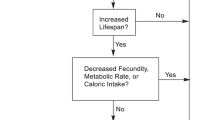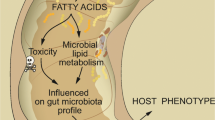Abstract
Dammar resin is a natural food additive and flavoring substance present in many foods and drinks. The present study evaluates the chronic toxicity and carcinogenicity of dietary dammar resin in F344 rats. Dietary concentrations in the 52-week chronic toxicity study were 0, 0.03, 0.125, 0.5, or 2%. The major treatment-related deleterious effects were body weight suppression, increased relative liver weight, and low hemoglobin levels in males and females. Foci of cellular alteration in the liver were observed in the male 2% group, but not in any other group. The no-observed-adverse-effect level for chronic toxicity was 0.125% for males (200.4 mg/kg b.w./day) and females (241.9 mg/kg b.w./day). Dietary concentrations in the 104-week carcinogenicity study were 0, 0.03, 0.5, or 2%. Dammar resin induced hemorrhagic diathesis in males and females, possibly via the inhibition of extrinsic and intrinsic coagulation pathways. Incidences of hepatocellular adenomas and carcinomas were significantly increased in the male 2% group, but not in any other group. In the 4-week subacute toxicity study, the livers of male rat-fed diet-containing 2% dammar resin had increased levels of protein oxidation and increased the expression of two anti-apoptotic and seven cytochrome P450 (CYP) genes. There was also an increased tendency of oxidative DNA damage. These findings demonstrate that dammar resin is hepatocarcinogenic in male F344 rats and underlines the roles of inhibition of apoptosis, induction of CYP enzymes, and oxidative stress in dammar resin-induced hepatocarcinogenesis.




Similar content being viewed by others
References
Andrikopoulos NK, Kaliora AC, Assimopoulou AN, Papapeorgiou VP (2003) Biological activity of some naturally occurring resins, gums and pigments against in vitro LDL oxidation. Phytother Res 17(5):501–507. https://doi.org/10.1002/ptr.1185
Bloom JC, Brandt JT (2007) Toxic responses of the blood. In: Klaassen C (ed) Casarett & Doull’s toxicology: the basic science of poisons. Seventh Edition edn. McGraw-Hill Education, New York
Cohen SM (2010) Evaluation of possible carcinogenic risk to humans based on liver tumors in rodent assays: the two-year bioassay is no longer necessary. Toxicol Pathol 38(3):487–501. https://doi.org/10.1177/0192623310363813
Cohen SM, Fukushima S, G FP et al (2017) 2017 GRAS flavoring substances 28. https://www.femaflavor.org/publications/gras-publications/gras-28
Dizdaroglu M, Jaruga P, Birincioglu M, Rodriguez H (2002) Free radical-induced damage to DNA: mechanisms and measurement. Free Radic Biol Med 32(11):1102–1115
FSCJ (2010) Guideline for assessment of the effect of food on human health regarding food additives, Food Safety Commission of Japan (FSCJ) http://www.fsc.go.jp/english/standardsforriskassessment/guideline_assessment_foodadditives_e2.pdf
Fukushima S, Wanibuchi H, Morimura K et al (2002) Lack of a dose-response relationship for carcinogenicity in the rat liver with low doses of 2-amino-3,8-dimethylimidazo[4,5-f]quinoxaline or N-nitrosodiethylamine. Jpn J Cancer Res 93(10):1076–1082
Gibson GG, Plant NJ, Swales KE, Ayrton A, El-Sankary W (2002) Receptor-dependent transcriptional activation of cytochrome P4503A genes: induction mechanisms, species differences and interindividual variation in man. Xenobiotica 32(3):165–206. https://doi.org/10.1080/00498250110102674
Hall AP, Elcombe CR, Foster JR et al (2012) Liver hypertrophy: a review of adaptive (adverse and non-adverse) changes—conclusions from the 3rd International ESTP Expert Workshop. Toxicol Pathol 40(7):971–994. https://doi.org/10.1177/0192623312448935
Hayashi M, Matsui M, Ishii K, Kawasaki M (2000) Environmental mutagen research 22:27–44. http://ci.nii.ac.jp/naid/110001710452/en (in Japanese)
INHAND. International harmonization of nomenclature and diagnostic criteria for lesions in rats and mice. Society of Toxicologic Pathology. https://www.goreni.org/gr3_nom_inhand_publ.php
JECFA (1986) Evaluation of certain food-additives and contaminants (twenty-ninth report of the Joint FAO/WHO Expert Committee on Food Additives). WHO Technical Report Series Evaluation of Certain Food Additives and Contaminants. vol 733, p 16
Kanki M, Gi M, Fujioka M, Wanibuchi H (2016) Detection of non-genotoxic hepatocarcinogens and prediction of their mechanism of action in rats using gene marker sets. J Toxicol Sci 41(2):281–292. https://doi.org/10.2131/jts.41.281
Luch A (2005) Nature and nurture—lessons from chemical carcinogenesis. Nat Rev Cancer 5(2):113–125. https://doi.org/10.1038/nrc1546
Mammen E (2002) Thrombohemorrhagic defects in liver and renal diseases. In: Bick RL (ed) Disorders of thrombosis and hemostasis: clinical and laboratory practice. 3rd Edition edition edn. Lippincott Williams & Wilkins, Philadelphia
Moon H, Ahn H, Kodell RL (2006) A computational tool for testing dose-related trend using an age-adjusted bootstrap-based Poly-k test. J Stat Softw 16(7):1–14. https://doi.org/10.18637/jss.v016.i07
Nebert DW, Dalton TP (2006) The role of cytochrome P450 enzymes in endogenous signalling pathways and environmental carcinogenesis. Nat Rev Cancer 6(12):947–960. https://doi.org/10.1038/nrc2015
NTP (2011) NTP historical controls report: all routes and vehicles: F344/N rats. http://ntp.niehs.nih.gov/ntp/historical_controls/ntp2000_2010/2010-03-22-hist-ratsallroutes.pdf. Washington, DC
Poehland BL, Carte BK, Francis TA, Hyland LJ, Allaudeen HS, Troupe N (1987) In vitro antiviral activity of dammar resin triterpenoids. J Nat Prod 50(4):706–713
Rodriguez-Antona C, Ingelman-Sundberg M (2006) Cytochrome P450 pharmacogenetics and cancer. Oncogene 25(11):1679–1691. https://doi.org/10.1038/sj.onc.1209377
Schieber M, Chandel NS (2014) ROS function in redox signaling and oxidative stress. Curr Biol 24(10):R453–R462. https://doi.org/10.1016/j.cub.2014.03.034
Stafford DW (2005) The vitamin K cycle. J Thromb Haemost 3(8):1873–1878. https://doi.org/10.1111/j.1538-7836.2005.01419.x
Tompkins LM, Wallace AD (2007) Mechanisms of cytochrome P450 induction. J Biochem Mol Toxicol 21(4):176–181
Uehara T, Minowa Y, Morikawa Y et al (2011) Prediction model of potential hepatocarcinogenicity of rat hepatocarcinogens using a large-scale toxicogenomics database. Toxicol Appl Pharmacol 255(3):297–306. https://doi.org/10.1016/j.taap.2011.07.001
Ukiya M, Kikuchi T, Tokuda H et al (2010) Antitumor-promoting effects and cytotoxic activities of dammar resin triterpenoids and their derivatives. Chem Biodivers 7(8):1871–1884. https://doi.org/10.1002/cbdv.201000107
USP (2012) Food chemicals codex, 8th edn. The United States Pharmacopeial Convention, Washington, DC
Xie XL, Wei M, Kakehashi A et al (2012) Dammar resin, a non-mutagen, induces [corrected] oxidative stress and metabolic enzymes in the liver of gpt delta transgenic mouse which is different from a mutagen, 2-amino-3-methylimidazo[4,5-f]quinoline. Mutat Res 748(1–2):29–35. https://doi.org/10.1016/j.mrgentox.2012.06.005
Yamada F, Sumida K, Uehara T et al (2013) Toxicogenomics discrimination of potential hepatocarcinogenicity of non-genotoxic compounds in rat liver. J Appl Toxicol 33(11):1284–1293. https://doi.org/10.1002/jat.2790
Zangar RC, Davydov DR, Verma S (2004) Mechanisms that regulate production of reactive oxygen species by cytochrome P450. Toxicol Appl Pharmacol 199(3):316–331. https://doi.org/10.1016/j.taap.2004.01.018
Acknowledgements
This work was supported by Health and Labour Sciences Research Grants from the Ministry of Health, Labor and Welfare of Japan, and a grant from The Japan Food Chemical Research Foundation. We are grateful to Dr. Robert R. Maronpot (Maronpot Consulting LLC, Raleigh, NC, USA) for reviewing this manuscript. The authors gratefully acknowledge the technical assistance of Masahiko Kushida (Sumika Partners, Osaka, Japan), Kaori Nakakubo, Rie Onodera, Keiko Sakata, Yuko Hisabayashi, and Yukiko Iura (Department of Molecular Pathology, Osaka City University Graduate School of Medicine School, Osaka, Japan), and Shiota Masayuki and Yukimi Kira (Research Support Platform, Osaka City University Graduate School of Medicine, Osaka, Japan).
Author information
Authors and Affiliations
Corresponding author
Ethics declarations
Ethical standards
The manuscript does not contain clinical studies or patient data.
Conflict of interest
The authors declare that they have no conflict of interest.
Electronic supplementary material
Below is the link to the electronic supplementary material.
Rights and permissions
About this article
Cite this article
Gi, M., Fujioka, M., Yamano, S. et al. Chronic dietary toxicity and carcinogenicity studies of dammar resin in F344 rats. Arch Toxicol 92, 3565–3583 (2018). https://doi.org/10.1007/s00204-018-2316-7
Received:
Accepted:
Published:
Issue Date:
DOI: https://doi.org/10.1007/s00204-018-2316-7




